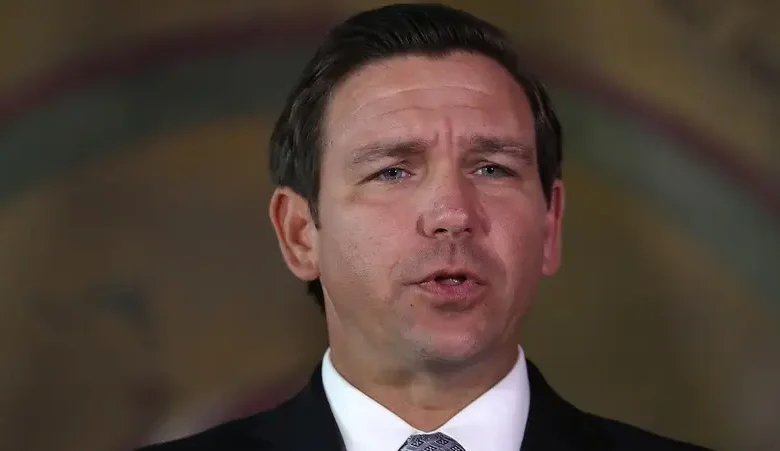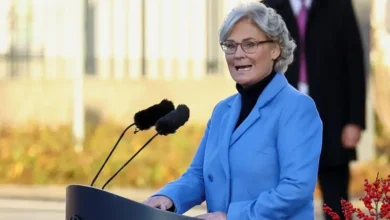DeSantis agenda wins in Florida but could cost him in 2024: Poll

Florida Governor Ron DeSantis’ policy agenda includes new restrictions on abortion and further loosening gun laws, stances that may help him in his expected run for the 2024 Republican presidential nomination but could hurt his chances of actually being elected, according to a Reuters/Ipsos opinion poll.
The results of the March 14-20 survey, which gauged national opinion around policies DeSantis backs, underscore the challenges – as well as some opportunities – that await him should he challenge former President Donald Trump for the nomination.
Only a third of Americans want a presidential candidate who supports severe restrictions on abortion rights and most voters oppose allowing people to carry concealed firearms without a permit, according to the poll of 4,410 adults.
Should DeSantis run, his positions on abortion and guns will likely help win support of Republican primary voters in the early months of 2024, but may hurt him with the independent and more moderate voters he would need to win, the data suggested.
“If a candidate ran on these issues, Democrats are going to have an advantage,” said William Frey, an expert on polling and elections at the Brookings Institution in Washington.
Some 65 percent of respondents – including 46 percent of Republicans and 68 percent of independents – said they were less likely to vote for a presidential candidate in 2024 who supports laws banning or severely restricting abortion access.
Sixty-three percent – including 53 percent of Republicans – said they opposed laws that would allow people to carry concealed guns without a licensing requirement.
DeSantis last year signed a Florida law banning abortions after 15 weeks, saying the measure would protect “the rights of unborn children.”
His allies in Florida’s Republican-controlled legislature have proposed a six-week ban. Asked in February if he would sign into law such a proposal, DeSantis urged lawmakers to pass legislation he could sign.
He supports another bill in Florida to allow people to carry concealed weapons without a permit or training, saying in March that this would be in line with the US Constitution.
DeSantis’ political team did not respond to a request for comment.
The governor, who won reelection in November by about 19 percentage points, has defended his approach to government as being focused on fulfilling campaign promises. “I am not doing polls to tell me what to do,” he said during a March 10 visit to Iowa, a state with a leading role in selecting presidential candidates.
Republicans had a weaker showing than expected in November’s congressional elections after Democratic turnout was boosted by a US Supreme Court ruling striking down the national right to an abortion.
The online Reuters/Ipsos poll had a credibility interval of between around two and four percentage points.
Transgender focus
Some of DeSantis’s other positions could help him connect to voters in the US, which stands out among advanced economies for its conservatism.
At his urging, a Florida medical board last year effectively barred medications or surgery for new pediatric patients seeking gender transition.
The Reuters/Ipsos poll found 61 percent of respondents nationwide, including 66 percent of independents, prefer a candidate who opposes allowing medical treatment for minors related to gender identity.
That could give DeSantis an advantage in the Republican nomination contest, said Alex Conant, a Republican strategist who worked on Senator Marco Rubio’s 2016 presidential campaign.
“Clearly social issues are where the energy is in the Republican base,” said Conant.
DeSantis has become his party’s most prominent player in the country’s “culture wars” since becoming governor in 2019. During the coronavirus pandemic, he was the national face of resistance to mask and vaccine mandates.
He has also increased his conservative reputation by clashing with Walt Disney after the company’s CEO criticized a DeSantis-backed measure in Florida that restricts classroom instruction of gender and sexual orientation. It could be expanded to include all students in Florida public schools.
The poll showed Americans are sharply divided on whether schools should teach children about sexual orientation and gender identity, with 72 percent of Democrats in favor and 76 percent of Republicans opposed.
Respondents who identify as politically independent were more divided, with 56 percent saying they preferred a candidate who would keep teachers out of the discussion.
The Reuters/Ipsos poll found that nationwide, women were more likely than men to oppose severe abortion restrictions and permitless concealed guns.
Seventy-four percent of women age 18-39 were turned off by presidential candidates in favor of severe abortion restrictions, while 64 percent of women age 40 and older opposed removing licensing requirements for concealed weapons.
Mike Morey, a Democratic strategist, said a focus on cultural issues will work against the nominee in the general election.
“This will become a huge burden for whoever wins the Republican nomination,” he said.










